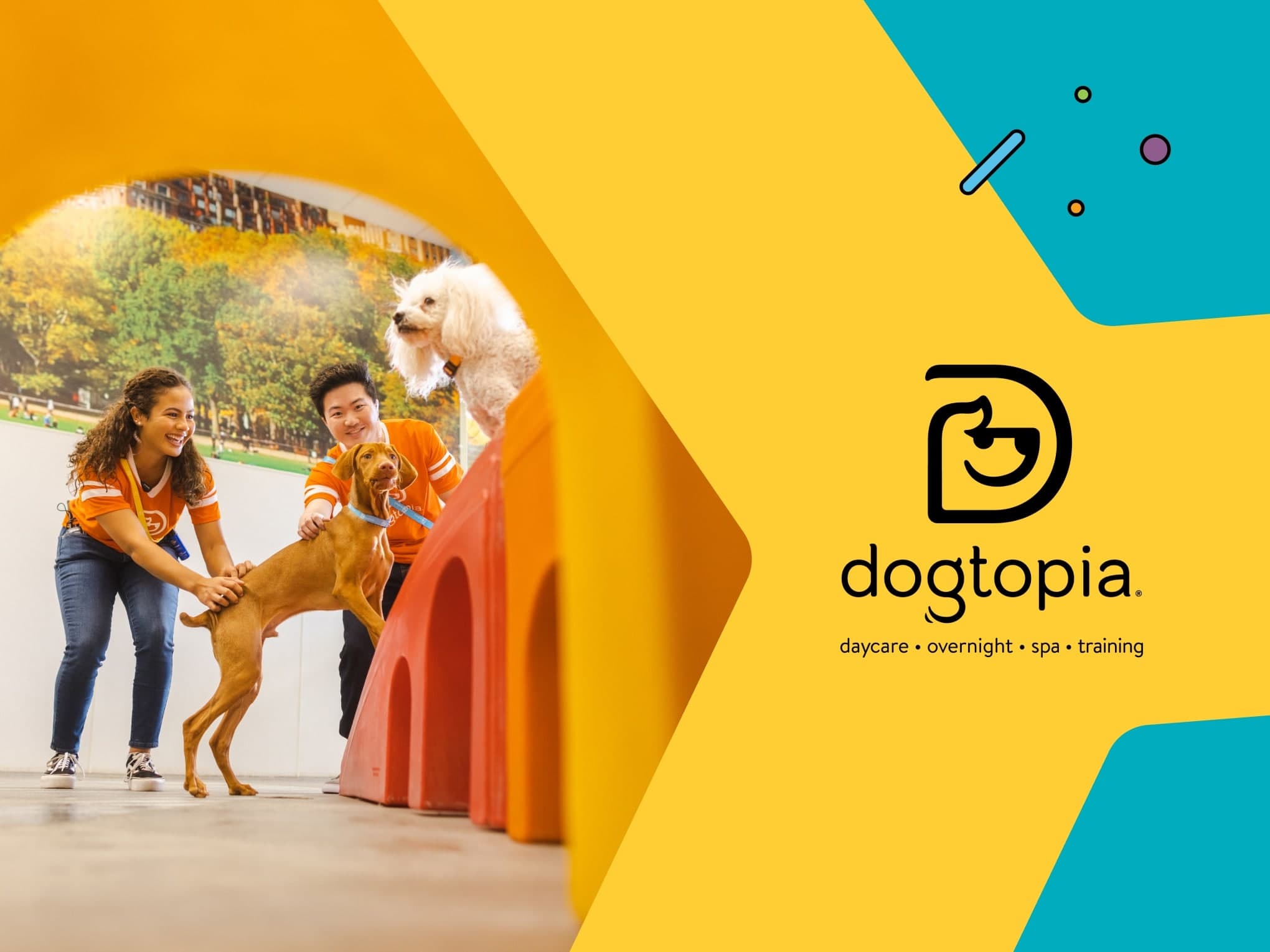Most dogs—like most of us—do best with a generous helping of structure, exercise, and social time. The problem? Life. Between Zoom marathons, last-minute travel, and the never-ending to-do list, it’s tough to keep your dog’s days as full as you’d like. That’s where dog daycare comes in. A good program isn’t just a place to drop your pup; it should be a place that offers exercise, other furry friends, and the kind of stimulation that keeps boredom (and the chewed-up sneakers that come with it) at bay.
And this isn’t about keeping them “busy.” It’s about taking care of their whole self, both mentally and physically—the same way you invest in nutrition, preventive vet visits, or a DNA test that helps you understand what makes them tick.

The Benefits of Daycare
- Regular exercise
Apartment pup or backyard sprinter, most dogs still don’t get the movement they need and crave while at home. Dog daycare fixes that by building exercise right into their schedule. Play sessions in a safe, supervised space keep muscles strong, hearts healthy, and weight under control, without you logging an extra five walks before dinner. - Safe socialization
Not every dog gets the chance to make new friends beyond their household pack. At daycare, groups are matched by size and play style, with trained staff keeping an eye on things. The result? More confidence, better manners, and a dog who can handle new situations without skipping a beat. - Mental enrichment
Dog daycare isn’t just about running around. Activities like structured games, puzzles, and training moments give dogs the mental challenge they need to stay sharp. Mental stimulation can be as tiring—and as important—as physical exercise. - Relief from separation stress
Some dogs are fine solo; others unravel the moment the door closes. For the latter, daycare offers company, routine, and something to focus on besides missing you. It’s a simple way to prevent chewed furniture, nonstop barking, or stressed pacing. - Better balance at home
A dog who’s spent the day exercising, socializing, and learning usually comes home ready to chill. That means less chaos, more cuddles, and a calmer household overall.

Knowing if Daycare Is Right for Your Dog
Puppies, high-energy breeds, and social butterflies often love dog daycare, while more reserved or anxious dogs may need more time to adjust. Signs your dog would benefit from dog daycare include:
- Excitement around other dogs
- Extra energy that’s hard to burn off on daily walks
- Separation anxiety when left alone
- A desire for new experiences and environments
Most reputable daycares—like Dogtopia—require an evaluation or “Meet & Greet” to ensure the environment is a good fit. This step protects your dog’s well-being and helps set them up for success. Plus, pet parents can have peace of mind knowing all dogs passed the same evaluation.

What to Look For in a Daycare
Choosing a dog daycare can feel like choosing a school for your child. A few important factors to consider:
- Trained supervision. Look for caregivers who understand dog behavior and step in to manage play when needed.
- Safe facilities. Playrooms should be clean and designed for dogs, with non-slip surfaces and secure spaces.
- Structured routine. The best daycares balance active play with rest to avoid overstimulation.
- Transparency. Live webcams, activity monitors, report cards, and open communication give you insight into your dog’s day.

Dogtopia, one of the largest dog daycare and boarding providers in North America, has clean, off-leash playrooms, trained Canine Coaches, and enrichment-focused activities designed around exercise, education, and socialization. While every daycare has its own approach, these kinds of standards are what you want to see when choosing the right environment for your dog.
Making Daycare Part of a Whole-Dog Wellness Plan
Daycare works best when it’s part of a bigger picture of proactive care. At Embark, we believe in helping pet parents understand their dog’s unique needs, starting with DNA. Genetic insights can tell you about your dog’s predispositions for certain health conditions, their exercise needs, and even behavioral tendencies.
Pair that knowledge with regular enrichment and social opportunities like daycare, and you have a plan that supports both physical and emotional health.

Final Thoughts
If you’re considering dog daycare, take the time to visit the facility, ask about their approach, and think about how it fits your dog’s personality to ensure you’re both comfortable in the environment.

For pet parents who want a structured environment with an emphasis on safe play and enrichment, Dogtopia is one option worth looking into.













